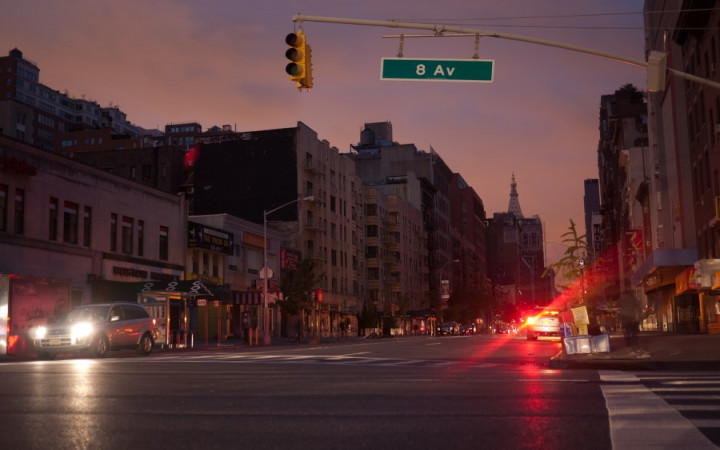Today’s Wonder of the Day was inspired by Tinas from AZ. Tinas Wonders, “Why do we have blackouts?” Thanks for WONDERing with us, Tinas!
Can you imagine life without electricity? How do you think you would have fared in the pioneer days? Given all of the electronic devices we're surrounded with in today's world, it's hard for many people to conceive of a life without electricity.
From time to time, though, we do have to go without electricity. When a bad storm hits, for example, it's not unusual to lose power for an extended period of time if lightning strikes a transformer or strong winds knock down power lines.
When electric power is interrupted completely, we call it a blackout. That term should be self-explanatory, especially if you've ever been reading at night when the power goes out. Unless you were reading by candlelight, you likely found yourself in the blackness of total darkness when the lights went out.
Sometimes, though, interruptions are temporary and only result in a reduction in the amount of electricity rather than a complete loss of power. When this occurs, we call it a brownout. During a brownout, your lights will usually dim and may flicker on and off.
Brownouts can also cause major problems with electrical products, especially high-tech items like computers and televisions. Reduced levels of electric current can cause these products to shut off or malfunction. Some products can even be permanently damaged by fluctuations in electricity levels.
Brownouts have a wide variety of causes. Like blackouts, they can be caused by bad weather. Another common cause of brownouts is an overloaded power grid. Many people experience brownouts in the dog days of summer, when temperatures soar and air-conditioning units work overtime to try to keep people cool.
When power companies foresee high usage during the hottest days of the year, they sometimes create brownouts on purpose. When this happens, they call these temporary cuts in current voltage reductions. By reducing power to certain areas temporarily, they alleviate the strain on the power grid and allow electricity reserves to build up.
Alternatively, power companies might also institute rolling blackouts with the same goal in mind. Rolling blackouts are complete interruptions in power to certain areas in order to stabilize the power grid during times of peak usage. They're called rolling blackouts because the power company will restore power to one area while it cuts power to another area, rolling the blackout over its entire service area until stability in the power grid can be maintained.
So what should you do in case of a brownout? Reduce your power consumption as much as possible. Since brownouts are caused by a lack of electricity, reducing power consumption will help end a brownout sooner. Also be sure to turn off electrical appliances, such as computers and televisions, to prevent them from becoming damaged.




